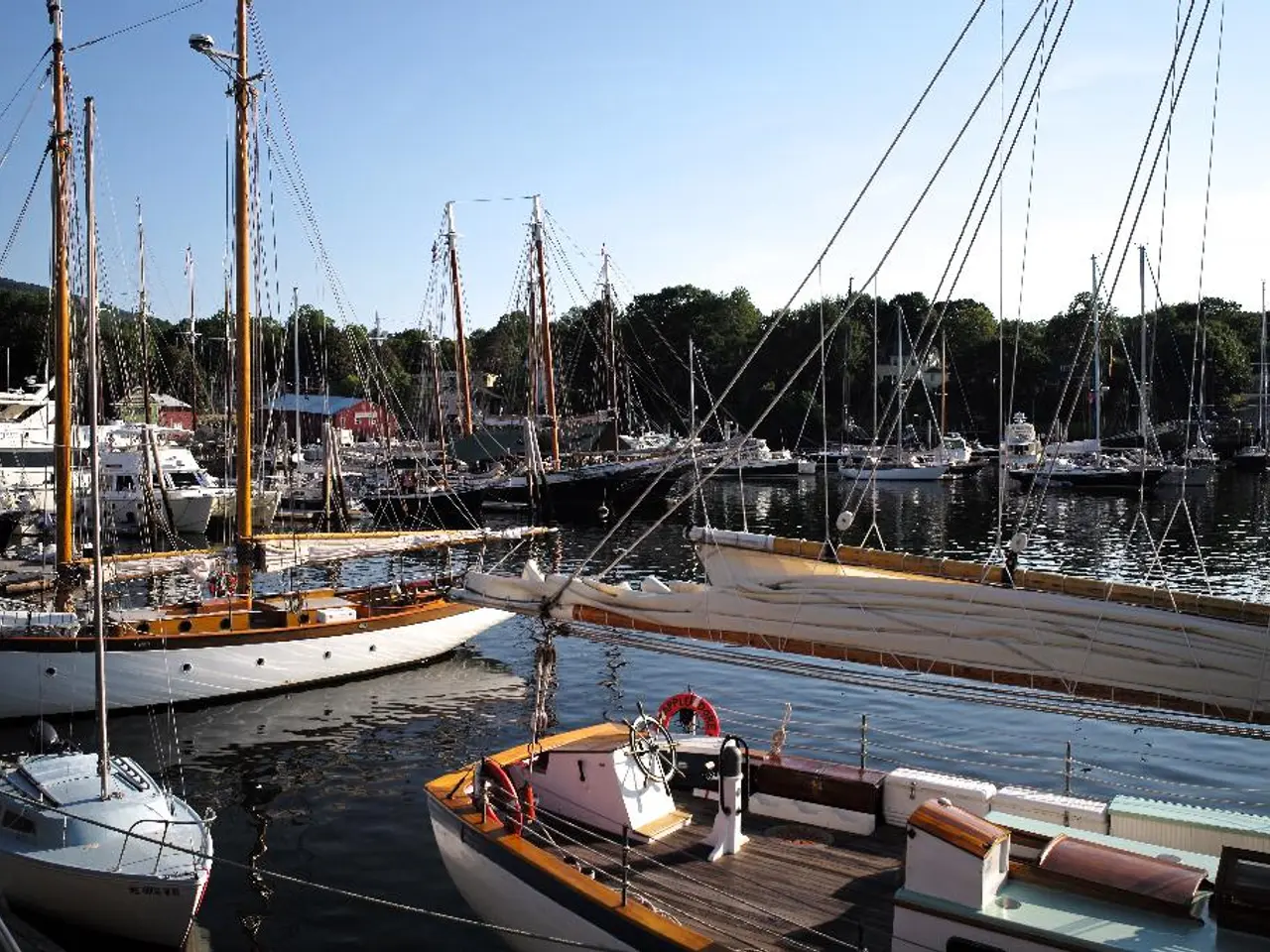Legislation on India's Ports Bill, 2025, is ratified, aiming to foster cooperative federalism and spur port growth and development.
The Indian Ports Bill 2025, a strategic intervention aimed at repositioning India's maritime sector for the 21st century, has been passed by the Lok Sabha. This bill, as mentioned by Union Minister Sarbananda Sonowal, modernizes and consolidates the legal framework governing ports in India, focusing on integrated port development, cooperative federalism, and ease of doing business.
Key aspects and benefits of the Indian Ports Bill 2025 include:
Cooperative Federalism
The Bill establishes State Maritime Boards in each coastal state, empowered to manage non-major ports with statutory powers over development, licensing, supervision, tariff-setting, and compliance. It also sets up the Maritime State Development Council, chaired by the Union Minister for Ports and including state ministers and senior officials, to coordinate national port development plans and promote inter-state collaboration. This strengthens Centre-State cooperation and fosters a more collaborative approach to port management.
Port Development
The bill facilitates integrated port development by enabling coordinated planning, promoting modernization, and ensuring optimum utilization of India's coastline. The legislation mandates environmental protection measures like compliance with global maritime pollution standards, disaster management, security protocols, and dispute resolution mechanisms tailored to ports. These measures help ports evolve with 21st-century requirements, ensuring they remain competitive in the global maritime trade.
Ease of Doing Business
The Bill aims to remove archaic provisions and decriminalize certain offences to simplify regulatory processes. Transparency is enhanced through electronic publication of port tariffs and streamlined adjudication of port-related disputes via dedicated Dispute Resolution Committees. Mechanisation and digitalization foster significant reduction in ship turnaround times and operational efficiency, positioning India competitively in global maritime trade.
Environmental and Safety Compliance
The Act obligates ports to set up pollution control infrastructure, adhere to international conventions on pollution control and ballast water management, and face penalties for safety and environmental violations. This ensures that ports operate in an environmentally responsible manner, prioritizing the health and safety of the communities they serve.
In summary, the Indian Ports Bill 2025 establishes a modern governance framework balancing federal-state roles, encourages sustainable and efficient port infrastructure development, and creates a business-friendly, transparent environment to strengthen India's maritime sector. The bill is expected to have far-reaching implications for India's economy, contributing to increased trade, improved competitiveness, and job creation in the maritime sector.
[1] Indian Ports Bill 2025
[2] The Hindu
[3] Business Standard
[4] Livemint
- The Indian Ports Bill 2025, passed by the Lok Sabha, is expected to have significant effects on the economy, particularly in the business sector, as it aims to promote ease of doing business, foster cooperation between states, and develop sustainable port infrastructure. (The Hindu, Business Standard, Livemint)
- The legislation's focus on environmental and safety compliance, including the establishment of pollution control infrastructure and adherence to international conventions, exemplifies how politics and general-news issues such as climate change and public safety are integrated into the development of India's maritime sector. (The Hindu, Livemint)




